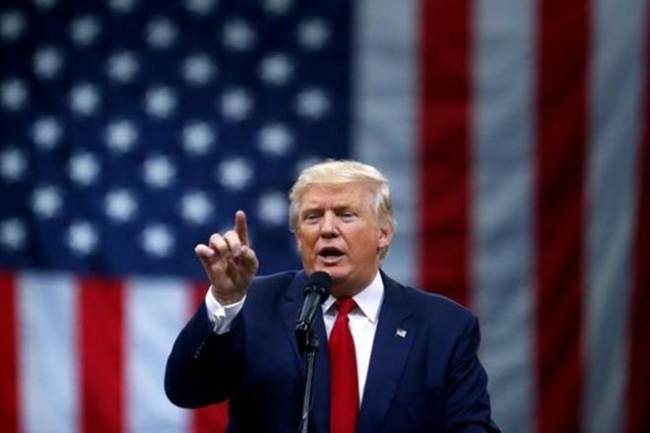US tariff move adds uncertainty to Korean automakers
By Shin Ji-hyePublished : June 3, 2018 - 16:09
The US latest tariff move has added uncertainty to the Korean automobile companies already facing a decline in sales in its largest export destination.
The US Department of Commerce recently sought opinions from interested parties pursuant to Section 232 to determine the national security impacts of automobile imports. This is a follow-up measure to the President Donald Trump ordering it last month to review whether it can impose up to 25 percent tariff on imported cars.
Industry watchers have raised questions that the Trump administration might be considering even discriminating against foreign carmakers that make cars in the US.
The Department of Commerce has been asking companies for comments on the implications of the current automobile market for the US’ economy and security. As part of that, it asked whether considering foreign carmakers in the US separately from US-owned makers would change this assessment.
The US Department of Commerce recently sought opinions from interested parties pursuant to Section 232 to determine the national security impacts of automobile imports. This is a follow-up measure to the President Donald Trump ordering it last month to review whether it can impose up to 25 percent tariff on imported cars.
Industry watchers have raised questions that the Trump administration might be considering even discriminating against foreign carmakers that make cars in the US.
The Department of Commerce has been asking companies for comments on the implications of the current automobile market for the US’ economy and security. As part of that, it asked whether considering foreign carmakers in the US separately from US-owned makers would change this assessment.

If it decides to penalize carmakers with US plants, this may be bad news for the nation’s largest automaker, Hyundai Motor, which announced last month the investment of 420 billion won ($390 million) in Alabama in an apparent move to respond to the US growing protectionism, according to experts.
“We can’t understand accurately why the US tried to classify its own brands and foreign brands. But, this may mean that ‘the US-owned brand’ is still more important even if foreign companies make their products in the US,” said Ahn Duk-geun, a professor of Seoul National University’s graduate school of international studies.
Based on the investigation, the US Department of Commerce plans to hold a public hearing in June over how imported cars and car parts affect national security.
If the US government decides to impose 25 percent tariffs on imported automobiles, the Korean automobile industry will be hit hard.
Currently, Korea is the fifth-largest auto exporter to the US following Canada, Japan, Mexico and Germany. The annual exports of Korean cars and car parts to the US stood at $14.6 billion and $5.6 billion respectively last year.
By brand, Hyundai Motor and Kia Motors shipped around 600,000 units, GM Korea exported around 130,000 units and Renault Samsung sold nearly 120,000 units. For Renault Samsung, a majority of the cars produced here are shipped to the US market.
Despite its heavy reliance on the US, the Korean car exporters US saw a decline in exports there for two straight years due mainly to growing competition and a strong won. Last year, they fell a 9.3 percent from the previous year and this year is also expected to be tough.
“(If high tariffs are imposed), Korean car makers, which have retained competitiveness in the US with low prices, will be affected more severely than German and Japanese automakers,” said Lee Hang-koo, a senior researcher at the Korea Institute for Industrial Economics & Trade.
In order to respond to the US protectionism, the Korean government set up a task force with the private sector and discussed with government officials from the EU, Mexico, Canada and Japan, which are large exporters to the US.
By Shin Ji-hye (shinjh@heraldcorp.com)


![[AtoZ into Korean mind] Humor in Korea: Navigating the line between what's funny and not](http://res.heraldm.com/phpwas/restmb_idxmake.php?idx=644&simg=/content/image/2024/04/22/20240422050642_0.jpg&u=)
![[Exclusive] Korean military set to ban iPhones over 'security' concerns](http://res.heraldm.com/phpwas/restmb_idxmake.php?idx=644&simg=/content/image/2024/04/23/20240423050599_0.jpg&u=20240423183955)



![[Graphic News] 77% of young Koreans still financially dependent](http://res.heraldm.com/phpwas/restmb_idxmake.php?idx=644&simg=/content/image/2024/04/22/20240422050762_0.gif&u=)
![[Herald Interview] Why Toss invited hackers to penetrate its system](http://res.heraldm.com/phpwas/restmb_idxmake.php?idx=644&simg=/content/image/2024/04/22/20240422050569_0.jpg&u=20240422150649)






![[Exclusive] Korean military to ban iPhones over security issues](http://res.heraldm.com/phpwas/restmb_idxmake.php?idx=652&simg=/content/image/2024/04/23/20240423050599_0.jpg&u=20240423183955)



![[Today’s K-pop] Ateez confirms US tour details](http://res.heraldm.com/phpwas/restmb_idxmake.php?idx=642&simg=/content/image/2024/04/23/20240423050700_0.jpg&u=)